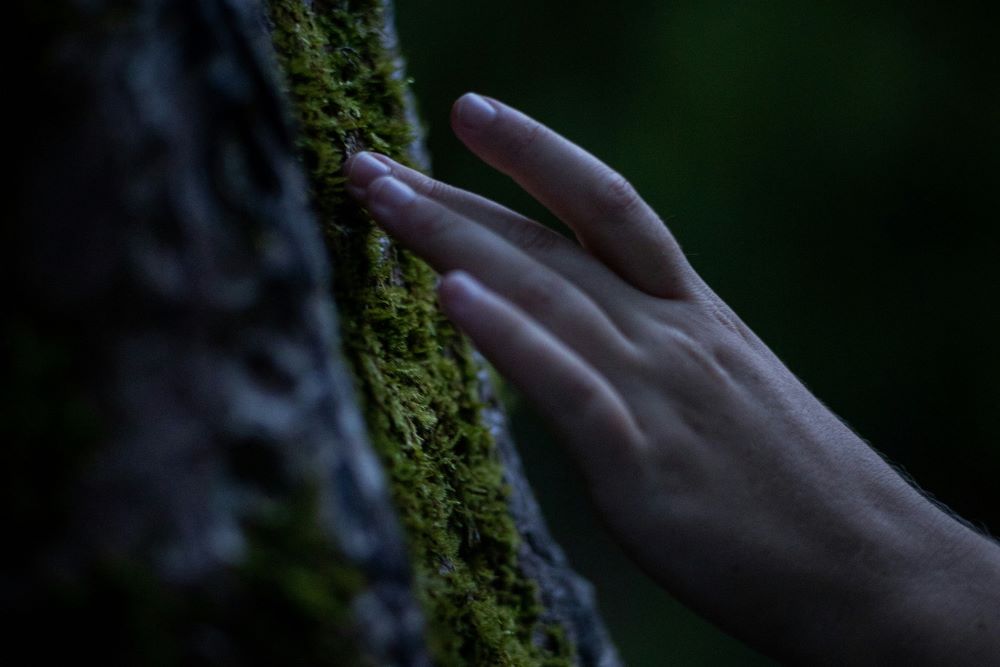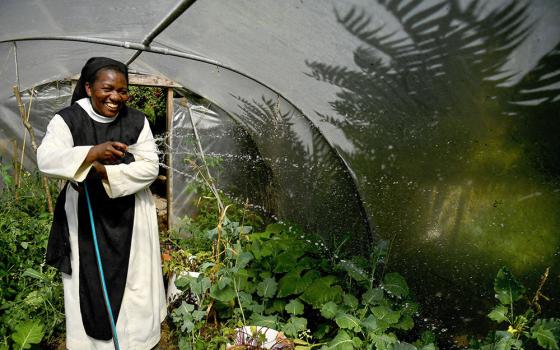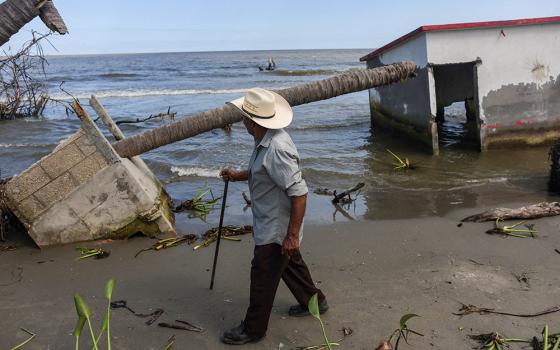
(Unsplash/Rapha Wilde)
As we mark the 10th anniversary of Pope Francis' historic encyclical "Laudato Si', on Care for our Common Home" this week, I have been reflecting on the importance of place. Over the last decade, a lot of people, including myself, have focused on key universal themes of the document, such as the call to ecological conversion, overcoming myopic anthropocentrism, concerns about the technocratic paradigm, the need for intergenerational justice and embracing integral ecology. But we've paid less attention to how this magisterial teaching invites us to look at the distinctive, particular and immediate places we inhabit in new ways.
Despite the many ways place appears as important in Scripture and in our Christian tradition — think of the importance of pilgrimage in Christianity, for example — the particularity of our context and surroundings rarely appear in our theological reflection, faith sharing or liturgical preaching.
One reason for this, as others have also noted, is the way our contemporary culture has created a dichotomy between the "natural" and the "human," as if being human was not also being part of nature. In our digital age this sense of separation has only grown more intense, which led Pope Francis to critique the "technocratic paradigm." We "live" in our heads through our phones and other devices, increasingly spending time distracted from what is right before us, whether that is other people and creatures or the landscape that surrounds us.
In the age of global climate crisis, we are also accustomed to thinking about the nonhuman world and earth more broadly as a massive, homogenous "other." While there is indeed a cosmic dimension to creation and our place as part of creation, the tendency to think about the nonhuman world too abstractly can lead us to look past what is right in front of us. This way of thinking can also, as Pope Francis noted, numb us to the plight of creation and our role in climate change because if we only think on cosmic scales, everything becomes too overwhelming to consider or tackle.
And while Laudato Si' does challenge the whole human community to work together — socially, politically, ecclesially — to address the climate crisis, it also challenges us to focus on what is right before us. We might think of this as something like an approach to ecological subsidiarity, which guides us to focus on recognizing and addressing those environmental challenges in our own (proverbial and literal) backyard.
We have forgotten that God is not to be found "out there" in some vague expanse of space, but right here in the places where we find ourselves.
It is no wonder that the ecological crisis of our age coincides with the growing decline in religious belonging. We have forgotten that God is not to be found "out there" in some vague expanse of space, but right here in the places where we find ourselves.
In a striking passage of Laudato Si' that I have not often seen cited, Pope Francis recounts the importance of place as the locus of divine encounter in creation.
The entire material universe speaks of God's love, his boundless affection for us. Soil, water, mountains: everything is, as it were, a caress of God. The history of our friendship with God is always linked to particular places which take on an intensely personal meaning; we all remember places, and revisiting those memories does us much good. Anyone who has grown up in the hills or used to sit by the spring to drink, or played outdoors in the neighborhood square; going back to these places is a chance to recover something of their true selves.
This sense of the importance of place as the site of divine encounter was anticipated by theologian John Inge in his book A Christian Theology of Place more than a decade before the publication of Laudato Si'. He writes: "Places are the seat of relations or place of meeting and activity in the interaction between God and the world." He adds, "Place is therefore a fundamental category of human and spiritual experience."
The more we ignore what is right before us, the more we are likely to lose a sense of the sacred gifted to us by God's abiding presence in creation. But as Pope Francis reminded us, it is not only a sense of nonhuman creation and of the divine that we lose, but we also lose a sense of our "true self." The scholar bell hooks acknowledged this dynamic in her 2008 book Belonging: A Culture of Place when she wrote: "When we love the earth, we are able to love ourselves more fully."
The theologian Craig Bartholomew, in his 2011 book Where Mortals Dwell: A Christian View of Place for Today, explains that "place is a quintessentially human concept in that it is part of our creatureliness." He adds, "since to be human is to be placed, it follows that place results from the dynamic interaction of humans and their particular locations."
As we commemorate this 10th anniversary of Laudato Si', I want to advocate for developing a Christian spirituality of place. First, we need to reimagine what it means to pray and consider the role of our local places in that practice. Second, following Pope Francis, each of us is called, in our own ways, to engage our communities in such a way as to protect the places in which we find ourselves.
Advertisement
To the first point, I am reminded of the spirituality scholar Douglas Christie's reflections on the importance of the contemplative practice of prosoche, or attention. In The Blue Sapphire of the Mind, Christie notes: "At the deepest level, the contemplative life was understood by the ancient monastics as a way of seeing (or to extend the metaphor as the monks often did, a way of listening or touching or tasting or smelling)."
We must relearn to attend to the place where we are, to open ourselves to see and hear and feel and experience the world around us and the presence of God drawing near to us in that place. Perhaps we can expand our prayer practices such that our moving or sitting while reflecting on the world around us helps to hone our attention to where the Holy Spirit is guiding us. Only then might we truly listen and respond to both the "cry of the earth and the cry of the poor."
Finally, near the end of Laudato Si' Pope Francis exhorted all Christians to get involved in practical ways to better care for "our common home," especially our local places. He acknowledged that "Not everyone is called to engage directly in political life," but that everyone is called to do something. In collaborating with one another and community organizations that seek to protect local places, we are responding to a Christian call. Pope Francis noted that such concrete action is a form of solidarity and love. And "These community actions, when they express self-giving love, can also become intense spiritual experiences."





